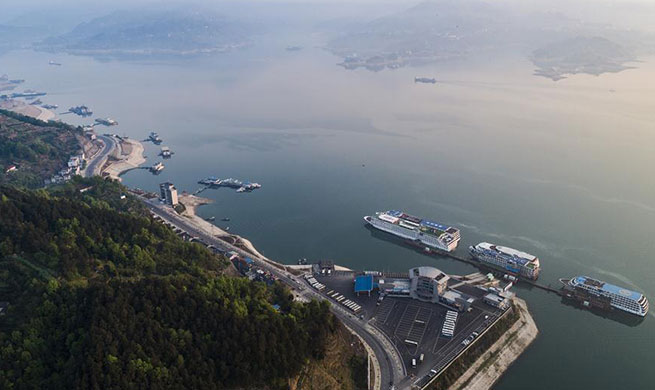LONDON, April 8 (Xinhua) -- British maritime sector, including ports, shipping and associated services, was among the most exposed to Brexit, according to a study released Monday by the Centre for Economics and Business Research,a London-based think tank.
A study said the sector accounting for 0.6 percent of British GDP, 1.1 percent of British turnover and 2.3 percent of exports of goods and services.
Despite small weights on British economy, the sector made the biggest contribution to the British economy in the facilitation of trade, reported a study.
"An end to the free movement of goods would mean customs checks, customs duties, regulatory checks and VAT processing on goods flowing between the UK and the EU, increasing the time and cost for UK exporters,"the study showed.
It noted that another consequence of an end to the free movement of people was that ferry operators could face a decrease in demand from British and EU nationals travelling across the channel.
The study quoted a data from UK Chamber of Shipping Seafarer Statistics as saying that over 36 percent of non-UK seafarers surveyed in 2017 originate from Poland, Croatia, Latvia and Romania alone.
"Given that the current supply of labour from places like Eastern Europe may soon be reduced, higher unskilled labour costs may soon be on the horizon for the maritime sector,"the study showed.
Study said the port of Dover could be seriously affected given a no-deal event, added that"in 2017 the port of Dover alone handled up to 17 percent of the UK's entire trade in goods, valued at around 220 billion pounds."
"Moreover, the Dover-Calais crossing accounts for nearly half of all short sea passenger routes,"said the study.
The study urged the government to pay more attention to the sector, added that"as a facilitator of the overwhelming majority of UK trade, the maritime sector should also be a key consideration for the government as it navigates the choppy waters that are the Brexit negotiations." (1 British pound = 1.31 U.S. dollars)












